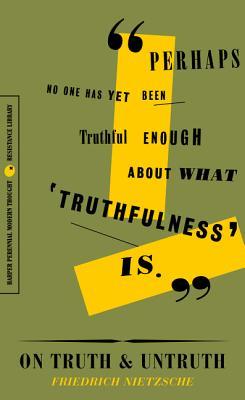What do you think?
Rate this book


161 pages, Paperback
First published January 1, 2010
"Every concept arises by means of the equating of the unequal. Just as certain as it is that no one leaf is exactly the same as any other, so, too, it is certain that the concept of leaf is formed by arbitrarily ignoring these individual differences, by forgetting what distinguishes one from the other, thus giving rise to the notion that there is in nature something other than leaves, something like "The Leaf," a kind of prototype according to which all leaves were woven, drawn, delineated, colored, crimped, painted, but by unskilled hands, so that no specimen turned out correctly or reliably as a true copy of the prototype. We call a man honest. We ask, "Why did he act so honestly today?" Our answer is, usually, "Because of his honesty." Honesty! Which is again like saying, "Leaf is the cause of leaves." We really have no knowledge at all of an essential quality called Honesty, but we do know countless individualized, hence unequal, actions, which we equate by leaving aside the unequal and henceforth designate as honest actions; finally, from them we formulate a qualitas occulta with the name Honesty.